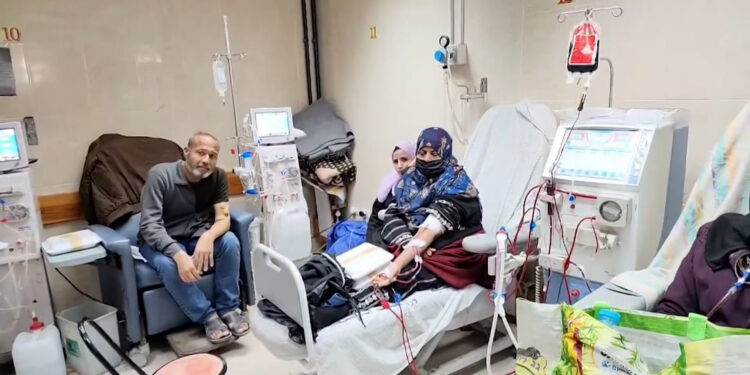Doctors said that the severe shortage of staff and equipment at the European Hospital in Gaza is forcing medical teams to make painful decisions about who to accept, leaving many patients without treatment despite suffering from serious injuries.
Doctors said that the European Hospital in the city of Khan Yunis in southern Gaza was designated to accommodate only 240 people, but it is currently treating about a thousand patients, while many displaced people are taking shelter in its corridors.
“On many days we are forced to choose between patients according to priority,” said plastic surgeon Ahmed Al-Makhalati, adding that this means focusing on those who have a greater chance of survival and abandoning those who are “in a bad situation and (need) a lot of care.”
He added, “We lost many patients because we were unable to provide the service. At one time, we did not receive any patient suffering from severe burns because we knew that the capacity in the intensive care unit could not handle this matter.”
Al-Makhalati talked about performing amputations on patients who lost their entire families, saying that he would often burst into tears “because we are unable to provide care in the required way.”
More than 27,000 people were martyred and 66,000 were injured in the Israeli attack on the Gaza Strip since October 7.
Most of the hospitals in the Gaza Strip stopped working, and some were subjected to direct bombardment or raids, while the hospitals that are still operating are under increasing pressure as Israeli forces approach them.
Lack of the most basic ressources
Facial surgeon Thaer Dhifallah complained of the shortage of even the most basic materials.
“I would say health care is in complete collapse and it will take years to get back to normal,” he said.
International Federation of Red Cross and Red Crescent Societies spokesman Tommaso della Longa said on Tuesday that nearby hospitals, such as Al Amal Hospital, which has been bombed several times in the past few weeks, may find it difficult to stay open.
He said at a press conference in Geneva, “I do not even want to think about the possibility of closing Al-Amal Hospital in the coming days, but the truth is that if the situation does not change, it will be very difficult for activities to continue in the hospital.”



